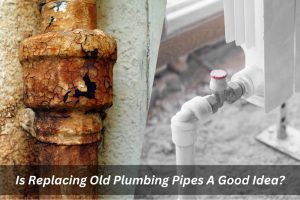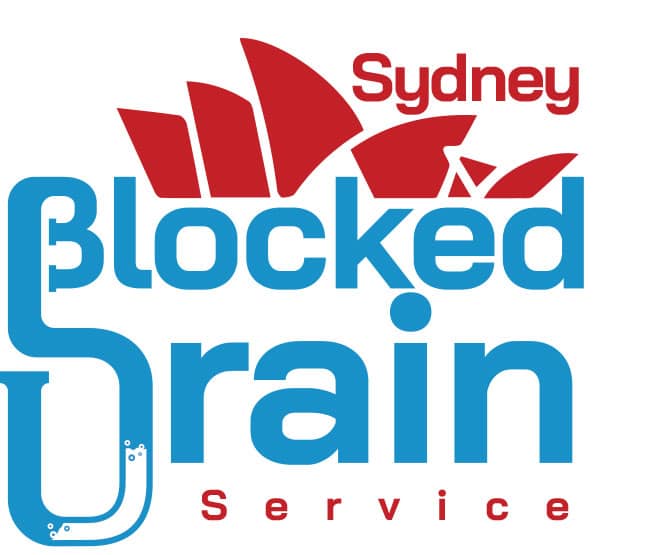Is Replacing Old Plumbing Pipes A Good Idea?

When it comes to the unseen infrastructure of our homes, plumbing often takes a backseat until a problem arises. One common concern among homeowners is the condition of their plumbing pipes. Over time, pipes can deteriorate, leading to leaks, rust, and reduced water quality. In this article, we’ll explore the crucial question: Is replacing old plumbing pipes a good idea?
Should you be worried about your rusty pipes?
Rust, the nemesis of metal pipes, can gradually eat away at their integrity. If you’ve noticed discoloured water or strange odours emanating from your taps, your pipes may be showing signs of rust. While a bit of rust may seem harmless, it could be an early warning sign of impending corrosion.
- Decreased water quality: Rusty pipes can compromise the quality of your water, introducing contaminants that are not only unpleasant but potentially harmful.
- Reduced water flow: Corrosion can lead to the build-up of rust, restricting the flow of water through the pipes. This can result in poor water pressure and slower drainage.
- Leaks and water damage: Severe rust can weaken pipes, making them prone to leaks. Undetected leaks can cause extensive water damage to your home, leading to costly repairs.
Is replacing old pipes really necessary?
The decision to replace old pipes is a significant one, and it’s essential to weigh the factors involved.
- Age of the pipes: The age of your plumbing system plays a crucial role. If your pipes are approaching or exceeding their life expectancy, replacement might be a prudent investment.
- Material of the pipes: Different materials have varying lifespans. For instance, galvanised steel pipes are more prone to corrosion than copper or PVC pipes. Understanding the materials in your plumbing system can help determine the urgency of replacement.
- Persistent issues: If you find yourself frequently dealing with plumbing issues despite repairs, it might be a sign that your pipes are beyond patching up. Continuous problems can be a red flag that replacement is the more sustainable solution.
Weighing the pros and cons of replacing old pipes
Before jumping into the decision to replace your old pipes, let’s explore the advantages and disadvantages.
Pros:
- Improved water quality: New pipes can enhance the quality of your water supply, eliminating rust and contaminants.
- Increased efficiency: Modern plumbing systems are designed for efficiency, providing better water pressure and flow.
- Reduced maintenance: With new pipes, the frequency of repairs and maintenance decreases, saving you time and money in the long run.
Cons:
- Cost: Replacing plumbing pipes can be a significant investment. However, it’s crucial to weigh this against potential repair costs and water damage expenses.
- Disruption: The process of replacing pipes can cause temporary disruptions to your water supply and daily routines.
- Environmental impact: The production and disposal of plumbing materials can have environmental implications. Consider eco-friendly options when possible.
What does replacing old pipes actually involve?
Understanding the process of replacing old pipes can help demystify the decision.
- Assessment: A professional plumber will assess the condition of your existing plumbing system, identifying issues and determining the best course of action.
- Material selection: Choosing the right material for your new pipes is crucial. Factors such as durability, cost, and environmental impact should be considered.
- Installation: The actual replacement involves removing old pipes and installing new ones. This may include updating fixtures and ensuring proper connections.
Can you DIY replacing old pipes?
While some plumbing tasks can be DIY projects, replacing old pipes is generally a job for professionals.
- Complexity: The intricacies of plumbing systems, including proper sizing and connection, require specialised knowledge.
- Compliance: Local building codes and regulations must be adhered to when replacing pipes. Professionals are familiar with these standards.
- Risk of damage: DIY attempts can lead to mistakes, potentially causing water damage and additional repair costs.
Is there a right time to replace old pipes?
Timing is crucial when considering the replacement of old pipes.
- Preventive replacement: If your pipes are approaching the end of their expected lifespan, considering replacement before issues arise can save you from potential damage and inconvenience.
- Persistent problems: If you find yourself dealing with frequent leaks, reduced water quality, or other plumbing issues, it might be the right time to invest in new pipes.
- Home renovations: If you’re planning renovations that involve plumbing, it makes sense to incorporate pipe replacement into the project for a comprehensive upgrade.
Beyond the pipes: Maintaining your new plumbing system
After investing in new pipes, proper maintenance is key to ensuring their longevity and efficiency.
- Regular inspections: Schedule periodic inspections to catch any potential issues before they escalate.
- Water quality testing: Periodically test your water quality to ensure that your new pipes are delivering clean and safe water.
- Prompt repairs: Address any plumbing issues promptly to prevent them from causing damage to your new system.
Conclusion
To sum up, the decision to replace old plumbing pipes involves a delicate balance between the age of your existing system, material considerations, and the persistent issues you may be facing. While the upfront cost of replacing pipes might seem like a substantial investment, it is essential to view it as a long-term strategy for maintaining the integrity and efficiency of your home’s plumbing. The benefits, including improved water quality, increased efficiency, and reduced maintenance, often outweigh the initial expense. Homeowners must recognise that replacing old pipes is not merely a financial decision; it’s an investment in the well-being of your property and the health of your family.
As you contemplate the possibility of pipe replacement, it’s crucial to consult with professionals who can provide expert advice tailored to your specific situation. The Sydney Blocked Drain Service stands ready to assist you in navigating the complexities of plumbing decisions. Our team of experienced professionals understands the unique challenges faced by homeowners in Sydney, from rust issues to aging pipes. We prioritise transparency and collaboration, ensuring you are well informed at every step of the process.
Don’t wait until a minor plumbing concern becomes a major headache. Whether you are dealing with persistent leaks, reduced water quality, or planning renovations, our team is here to offer personalised solutions. Contact Sydney Blocked Drain Service today to schedule an assessment of your plumbing system. Let us partner with you to ensure the longevity, efficiency, and reliability of your home’s plumbing infrastructure. Your peace of mind and the health of your home are our top priorities.
